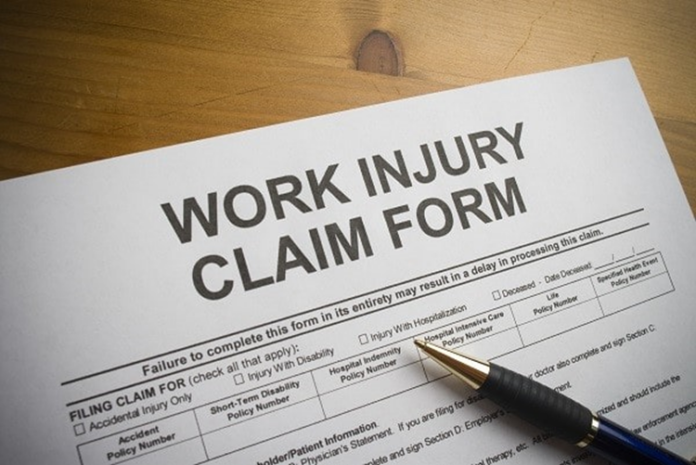Gov. Laura Kelly on Thursday signed a bill cementing a settlement reached between labor and business that will raise the caps on workers’ compensation claims while limiting administrative costs for employers.
“This legislation is a win for our workforce, our businesses, and organized labor,” Kelly said in a statement announcing she signed the bill.
“The reforms in this legislation will create a more just and efficient workers compensation system that increases the benefits for injured workers while creating administrative efficiencies and maintaining stability for businesses,” she said.
The final bill was the product of about a year of negotiations on a law that was last changed in 2011, leaving the state with among the lowest caps on workers’ compensation claims in the country.
Eight practicing work compensation attorneys – four advocating for labor and four representing business – held hours of meetings to decide how to best reform the workers’ compensation system.
The legislation passed unanimously in the House and the Senate and wasn’t amended at the urging of the parties that developed the agreement.
The bill would raise the caps for these workers’ compensation claims:
- Maximum death benefit would increase to $500,000 from $300,000.
- Permanent total disability benefits increase to $400,000 from $155,000.
- Permanent partial disability benefits increase to $225,000 from $130,000.
- A cost-of-living adjustment after 2027 based on increased wages in Kansas.
Businesses won some concessions that would limit their expenses going forward.
Among other things, the legislation would reduce and limit court-ordered independent medical evaluations and allow medical records to be admitted without depositions.
For instance, an administrative law judge may only order one independent medical examination without the agreement of the parties before the start of a prehearing settlement conference.
The bill also modifies wage calculations for the injured worker and changes the employee’s burden of proof to be eligible for future medical benefits.
For instance under the bill, if a worker underwent a surgical procedure – or one is anticipated – the employee’s burden is considered more probably true than not to show they need medical care in the future.
With the bill, if there is no surgical procedure, the employee’s burden to prove the need for future medical treatment is by clear and convincing evidence, allowing employers to fully resolve less serious claims.
The legislation also allows cases to be settled on a written stipulation if the worker is older than 18 and both parties are represented by an attorney.
After the bill was passed, the Kansas Trial Lawyers Association pointed to the increase in workers’ compensation caps as one of the major achievements of the legislation.
“KTLA has been a strong advocate to ensure that Kansas workers have the financial support they need in times of injury and illness,” the organization said after the bill passed.
“The cap increase,” the trial lawyers said, “assures compensation to injured Kansans is fair and aligns with today’s cost of living.
“Providing fair economic support for workers will contribute to a more stable and productive workforce,” he said.
Alan Cobb, president and CEO of the Kansas Chamber of Commerce, praised the deal.
“Compromise can be difficult to reach,” Cobb said in statement.
“But when opposing sides take the time to listen to one another, agreement can be found that serves all involved parties well,” he said.
“This reform makes several significant changes to safeguard the protection of injured workers and employers by ensuring that legitimate claims are compensated, and injuries never intended to be served by the system are not,” he said.
John Nave, executive vice president of the Kansas AFL-CIO, called the bill a “much-needed overhaul.”
“It shows that when we all sit down at the table and work through the sticking points, great things can be accomplished,” he said.
















